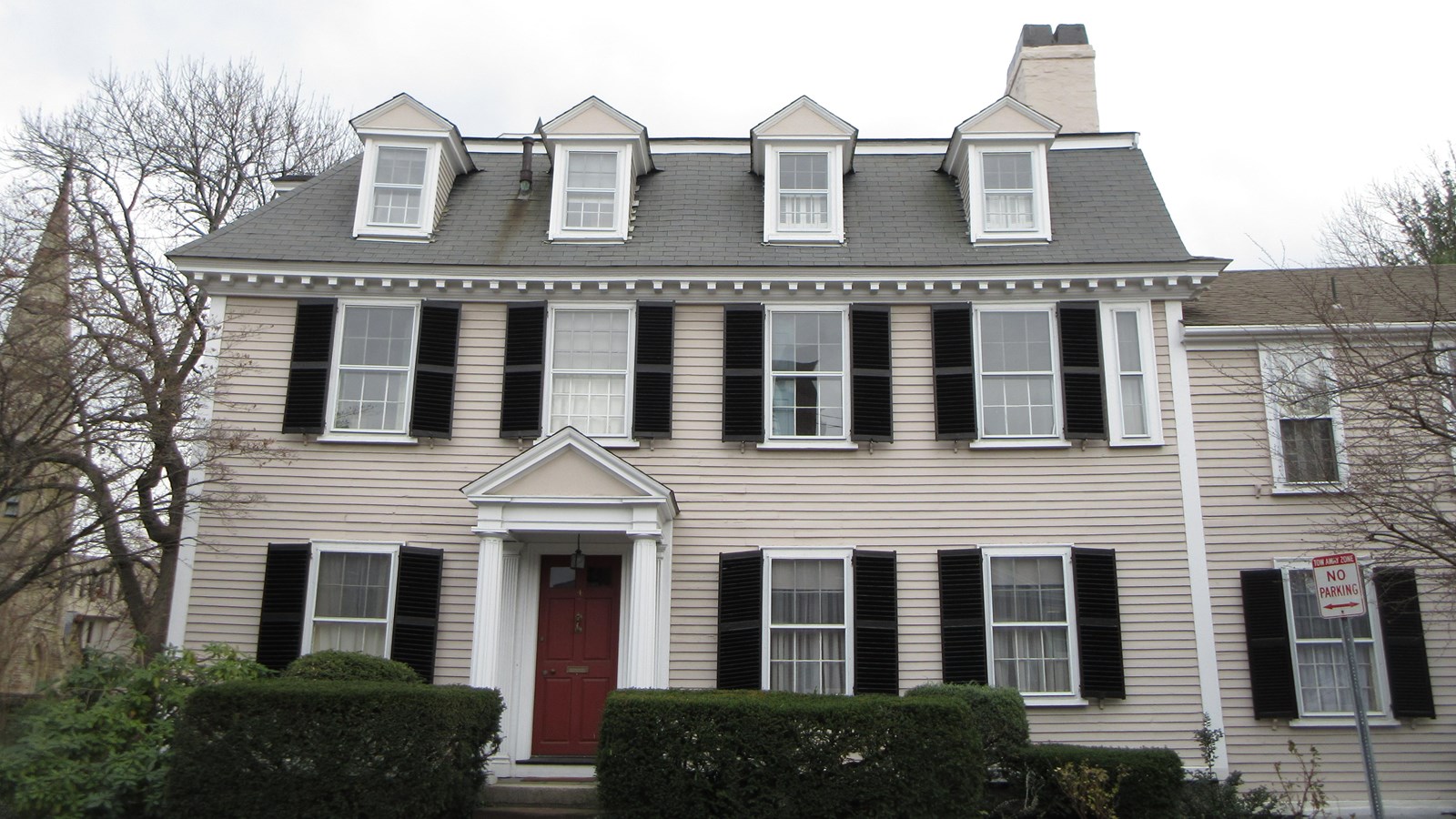As I
quoted yesterday, in September 1775 commanders of the northern wing of the
Continental Army besieging Boston were upset with how Surgeon-General
Benjamin Church was ordering sick and wounded men moved to his
hospitals in
Cambridge.
Gen.
John Sullivan and
Dr. Hall Jackson complained that there were sick people at those hospitals! Meaning men would be more likely to catch infections there than anywhere else.
In addition, the doctors looked down on
New Hampshire men as country bumpkins, and Dr. Church and his assistant surgeons weren’t as skilled as Jackson himself.
Well, Jackson didn’t come right out and say that last part (Sullivan did), but on 16 September he lambasted the central army hospitals this way:
Not an Officer or Soldier [from New Hampshire] will go to the Cambridge Hospital, they had much rather provide for themselves at Mistick at any expense, or even die in Camp with their friends than be forced into a General Hospital cram’d with the sick of 25,000 Troops; and attended by strangers from polite Places, who have never been used to the inquisitiveness and impatience of poor Country People, and are in general to apt to conster their simplicity into impertinence: it is the mind of General Sullivan, and all the Officers from New Hampshire, that unless some alteration is made, another Regiment will never be raised in that Colony.
Capt. [Henry] Dearbourn, with many others, are gone to Canada, for no other reason than to avoid the Sickness of our Camp, and dread of the general Hospital.
The arts, contrivance, and hypocricy, of some of the M—u—setts Patriots is dam—a—ble to the last degree. “A Struggle for Liberty”!—good God! my Soul abhors the Idea! If methodically to kill the wounded; to starve the sick, and languishing because they cannot Diet on Salt Pork, or will not submit to be severed from their dearest friends and relations, if these (my Dear Friend) are the Characteristicks of an Army raised for the defence of Liberty, I frankly confess I have no claim to an employment in the glorious Cause.
When Jackson wrote those words, however, the army had already formally looked into the dispute. On 7 September, Gen.
George Washington laid set out a formal process in his general orders:
Repeated Complaints being made by the Regimental Surgeons, that they are not allowed proper Necessaries for the Use of the sick before they become fit Objects for the General Hospital: And the Director General of the hospital complains, that contrary to the Rule of every established army, these Regimental Hospitals are more expensive than can be conceived; which plainly indicates that there is either an unpardonable Abuse on one side, or an inexcusable neglect on the other—
And Whereas the General is exceedingly desirous of having the utmost care taken of the sick (wherever placed and in every stage of their disorder) but at the same time is determin’d, not to suffer any impositions on the public;
he requires and orders, that the Brigadiers General with the commanding Officers of each Regiment in his brigade; do set as a Court of enquiry into the Causes of these Complaints, and that they summon the Director General of the hospital, and their several Regimental Surgeons before them, and have the whole matter fully investigated and reported—This enquiry to begin on the left of the Line to morrow, at the hour of ten in Genl Sullivan’s brigade.
That inquiry ended a week later with Church being cleared of all charges. Jackson’s letter was thus carrying on an argument he had already officially lost.
There must have been similar disputes in other parts of the army because Washington ordered the same sort of inquiry in Gen.
William Heath’s brigade in the central part of the lines, then in the brigades on the south wing. The commander-in-chief evidently felt that this process would force everyone to an agreement.
The second inquiry likewise ended in praise for Church. But by then the surgeon-general had left the front, pleading illness. Church even sent in his resignation from
Taunton. Adjutant-General
Horatio Gates wrote the doctor a flattering letter urging him to come back.
Then suddenly the conflict was resolved by an outside factor: The baker
Godfrey Wenwood came to Washington’s headquarters from
Newport with a ciphered letter that his ex-wife had asked him to send into Boston. Under questioning, that
woman, née
Mary Butler, admitted she had handled the letter for her lover—Dr. Church!
The 30 September inquiry in Gen.
Joseph Spencer’s brigade was called off “on account of the Indisposition of Dr Church.” That phrase in Washington’s general orders was cover for the fact that Church was under arrest in one of his hospital buildings (shown above) for
secretly corresponding with the British military.
On 4 October, Sullivan wrote in triumph:
You will by this Post Receive Intelligence from head-Quarters of Dr. Church’es having been detected in holding a Treasonable Correspondence with the Enemy—his Behaviour Towards our Sick & wounded long since Convinced me that he either was void of humanity and Judgment, or that he was Determined by untimely Removals & Neglect of Duty to Let all those under his care breathe their Last within the walls of his Detestable General Hospital.
On 17 October, Dr. Hall Jackson returned to Portsmouth. Since June, he had been working with no rank or salary. The next month, New Hampshire’s provincial government recognized his service with a commission as chief surgeon for the colony’s troops and back pay.
COMING UP: Back to Capt. Sylvanus Lowell, wounded in 1773. But first, a
Sestercentennial event.







